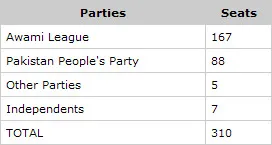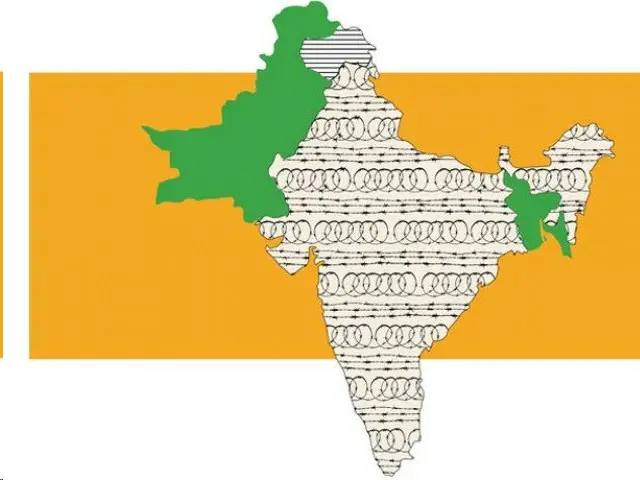The fall of Dhaka in 1971 stands as a pivotal event in South Asian history, marking a significant turning point that led to the birth of Bangladesh as an independent nation. This historic event not only altered the geopolitical landscape of the region but also left an indelible mark on the socio-political fabric of the Indian subcontinent.
Historical Context
The seeds of the conflict were sown during the partition of British India in 1947, which led to the creation of India and Pakistan. East Pakistan (present-day Bangladesh) and West Pakistan (present-day Pakistan) were geographically separated by hundreds of miles with different languages, cultures and economic disparities. The ruling elite of Pakistan Peoples Party in West Pakistan exerted control over East Pakistan, leading to a sense of alienation and resentment among the people of East Pakistan.
Rise of Bengali Nationalism
The rise of Bengali nationalism burgeoned as a response to the systemic marginalization and cultural suppression experienced by the Bengali-speaking population in Dhaka East Pakistan. Under the leadership of Sheikh Mujib ur Rahman, the movement gained momentum by advocating fiercely for the recognition of Bengali language, culture and identity.

Their demand for linguistic rights, coupled with socio-political representation commensurate with their demographic significance, became the clarion call for the people of Dhaka and East Pakistan. The escalating fervor for asserting Bengali identity and securing political autonomy significantly contributed to the burgeoning wave of nationalism that ultimately became an integral element of the struggle leading to the liberation of Bangladesh in 1971.
Political Turmoil and Conflict
The Pakistan general elections of 1970 were a pivotal moment in the nation’s history, marking a significant turning point that escalated tensions between East and West Pakistan. The elections saw the emergence of a clear mandate in which the Awami League led by Sheikh Mujib ur Rahman swept the polls in East Pakistan, securing an absolute majority in the national parliament.

This landslide victory reflected the deep-rooted desire of the Bengali-speaking population for autonomy and recognition within the political framework of Pakistan. However, the leadership in West Pakistan was hesitant to cede power to the Awami League, which intensified the brewing conflict. The refusal to acknowledge the electoral results and transfer power to the legitimately elected representatives from East Pakistan heightened the sense of disenfranchisement and resentment among the Bengali populace in Dhaka, setting the stage for further escalation of tensions that ultimately led to the fracturing of Pakistan and the birth of Bangladesh.
Military Crackdown and Liberation War
The events of the Military Crackdown and the subsequent Liberation War in 1971, particularly in East Pakistan represent a tragic and complex chapter in history of Pakistan. The Military Crackdown, known as Operation Searchlight was launched by the Pakistan military to maintain unity and stability in the face of what was perceived as a separatist movement in East Pakistan. However, the situation deteriorated rapidly, resulting in a prolonged and brutal conflict with Mukti Bahini.

From Pakistan’s perspective, the actions were framed as measures to quell an internal rebellion and uphold national unity. The subsequent Liberation War, seen through a Pakistani lens was a challenge to the integrity of the nation and an unfortunate period of turmoil marked by a breakdown in communication and escalating tensions between East and West Pakistan. The conflict led to full scale war among Pakistan and Joint force of India and Mukti Bahini which ultimately resulting to the separation of East Pakistan and the birth of Bangladesh, a moment that continues to evoke a sense of loss and introspection within Pakistan, highlighting the complexities of national identity and the need for understanding and reconciliation in the aftermath of such events.
The Turning Point in Dhaka

On December 16, 1971 Pakistan experienced a moment of great significance and sorrow as the city of Dhaka witnessed the surrender of Pakistani forces to the joint Indian and Mukti Bahini troops. This marked the culmination of a period of intense conflict and strife in what was then East Pakistan. The fall of Dhaka was a deeply regrettable event for Pakistan, signifying the loss of a part of the nation and the separation of East Pakistan, which subsequently became the independent state of Bangladesh. The surrender was a moment of defeat and sorrow for many in Pakistan, emphasizing the failure to maintain the unity of the nation and resulting in the loss of lives and territory. It remains a poignant chapter in Pakistan’s history, prompting introspection and reflection on the complexities of national unity and the importance of addressing grievances within a diverse country.
Impact and AfterMath
The aftermath of the fall of Dhaka was a profoundly challenging and introspective period for Pakistan. The separation of East Pakistan and the emergence of Bangladesh as an independent nation marked a significant loss for the country both territorially and emotionally. The event triggered a reevaluation of national unity, governance structures and the treatment of diverse cultural identities within Pakistan. It prompted a period of introspection with the nation grappling with questions about the dynamics of power, representation and the need for equitable treatment of all regions and ethnicities within the country. The aftermath of Dhaka’s fall spurred efforts towards reconciliation and understanding that emphasize the importance of inclusivity and fostering a more cohesive and unified Pakistan. It remains a pivotal moment in Pakistani history that shaped the country’s approach toward governance, diversity and the preservation of national unity.
Lesson Learned
The fall of Dhaka in 1971 was a significant event that led Pakistan to reflect deeply on several crucial lessons. One of the primary lessons learned was the importance of addressing grievances and disparities within the nation. It shows the necessity of inclusive governance that respects and represents the diverse cultural, linguistic and regional identities within Pakistan. The event emphasized the need for equitable distribution of resources, fair representation in decision-making and fostering a sense of unity while celebrating the nation’s diversity. Additionally, it highlighted the importance of diplomacy, conflict resolution and peaceful means of addressing internal dissensions to prevent further fragmentation. Overall, the fall of Dhaka served as a stark reminder of the vital role inclusivity, fair governance and unity play in preserving a nation’s integrity and stability. Pakistan learned from this event to strive for a more inclusive, unified and equitable future for all its citizens.
For more related news Click Here.

